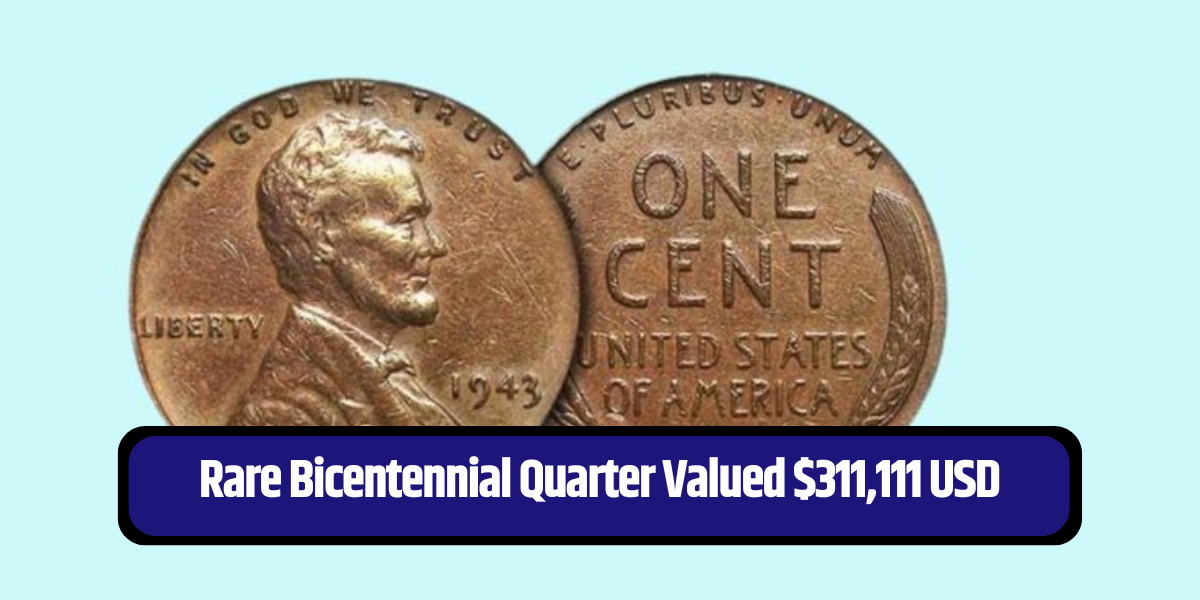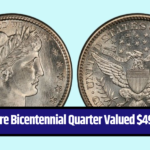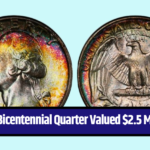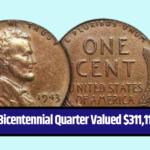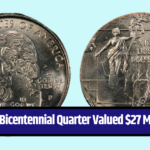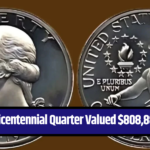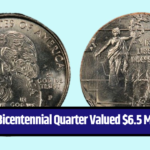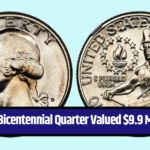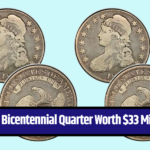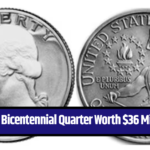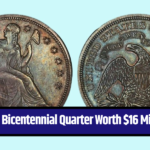Rare quarters offer an intriguing glimpse into the world of coin collecting, where a combination of rarity, historical context, and minting anomalies can elevate the value of ordinary coins to extraordinary heights. From the patriotic Bicentennial quarter to the quirky Spitting Eagle, these coins captivate collectors and investors alike. Let’s explore the fascinating stories behind some of the most sought-after quarters.
The Bicentennial Quarter: A Dual-Date Icon

The Bicentennial quarter is famous for its dual-date “1776-1976” design and the distinctive drummer boy reverse. Despite being produced in large numbers, a single piece with a minting error and uncirculated condition fetched $311,111 at auction. This coin is a prime example of how rarity and condition can transform a common design into a collector’s dream.
1932-S Washington Quarter: A First-Year Rarity
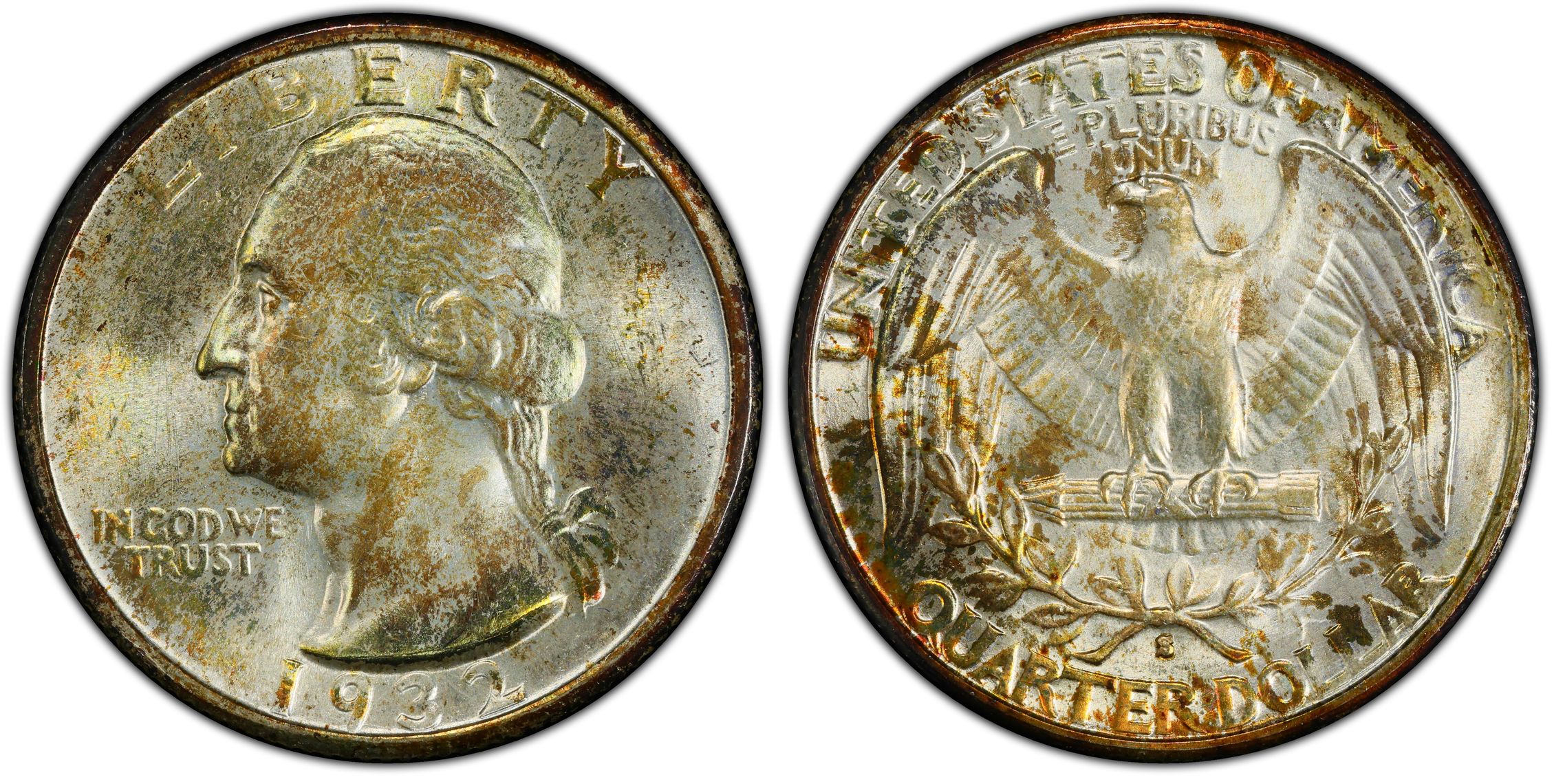
The 1932-S Washington quarter, part of the series’ inaugural year, had a limited mintage of just 408,000. Its historical significance and scarcity make it a key target for collectors. In pristine condition, these coins can command prices exceeding $81,111, particularly in high-grade examples with sharp details and minimal wear.
The Copper Alloy Quarter: A Wartime Anomaly

During World War II, quarters were predominantly struck in silver. However, in 1943, a few copper blanks were mistakenly used, creating one of the rarest anomalies in U.S. coin history. These copper alloy quarters, with their unique origin, can exceed $81,111 even in average condition, representing a tangible link to a significant historical period.
1950-D/S Overmintmark Quarter: A Minting Error Marvel
The 1950-D/S overmintmark quarter is a collector’s delight due to its unique error—a “D” mintmark stamped over an “S” mintmark. This minting mistake has made it highly desirable, especially among error coin enthusiasts. In excellent condition, these quarters often surpass $81,111 in value, showcasing the enduring appeal of mint errors.
1964-D Doubled Die Reverse Quarter: A Visual Standout

The 1964-D doubled die reverse quarter is celebrated for its striking doubling effect on the coin’s reverse. Elements like the eagle’s feathers and the “E PLURIBUS UNUM” inscription appear distinctly doubled. High-grade examples of this error coin frequently exceed $81,111, thanks to their rarity and striking appearance.
1972 No Mint Mark Quarter: A Subtle Rarity
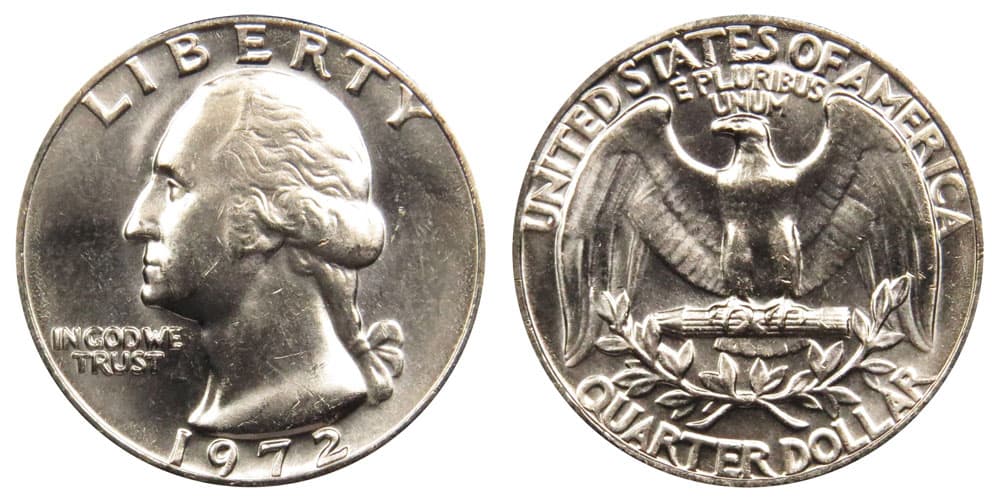
The 1972 no mint mark quarter stands out due to the absence of a mint mark—a result of a minting oversight. While quarters from Philadelphia were not typically marked, the lack of a mint mark on certain coins makes them rare collectibles. In excellent condition, these quarters can reach values above $81,111, appealing to those fascinated by minting anomalies.
1983-P Spitting Eagle Quarter: A Quirky Treasure
The 1983-P Spitting Eagle quarter owes its name to a die flaw that gives the illusion of the eagle on the reverse “spitting.” This unusual error, combined with the coin’s scarcity, has made it highly collectible. High-grade examples have surpassed $81,111 at auction, drawing collectors to its unique charm.
Table: Auction Prices of Rare Quarters
| Coin | Auction Price | Year Sold |
|---|---|---|
| Bicentennial Quarter | $311,111 | Recent |
| 1932-S Washington Quarter | Over $81,111 | Varied |
| 1943 Copper Alloy Quarter | Over $81,111 | Varied |
| 1950-D/S Overmintmark Quarter | Over $81,111 | Varied |
| 1964-D Doubled Die Quarter | Over $81,111 | Varied |
| 1972 No Mint Mark Quarter | Over $81,111 | Varied |
| 1983-P Spitting Eagle Quarter | Over $81,111 | Varied |
These remarkable coins showcase the captivating stories that lie within the world of numismatics. From errors that become treasures to designs steeped in history, each coin holds a unique narrative. For collectors, owning these rare pieces is about more than financial gain—it’s about preserving history and embracing the thrill of discovery.
FAQs:
What makes the Bicentennial quarter so valuable?
The high auction value stems from a rare minting error combined with uncirculated condition, making it highly sought after by collectors.
Why are minting errors so popular among collectors?
Minting errors are rare occurrences that add uniqueness to a coin, often resulting in increased demand and value.
How can I determine if my quarter is rare?
Look for distinguishing features like minting errors, low mintages, or historical significance. Consulting a numismatics expert is advisable.
